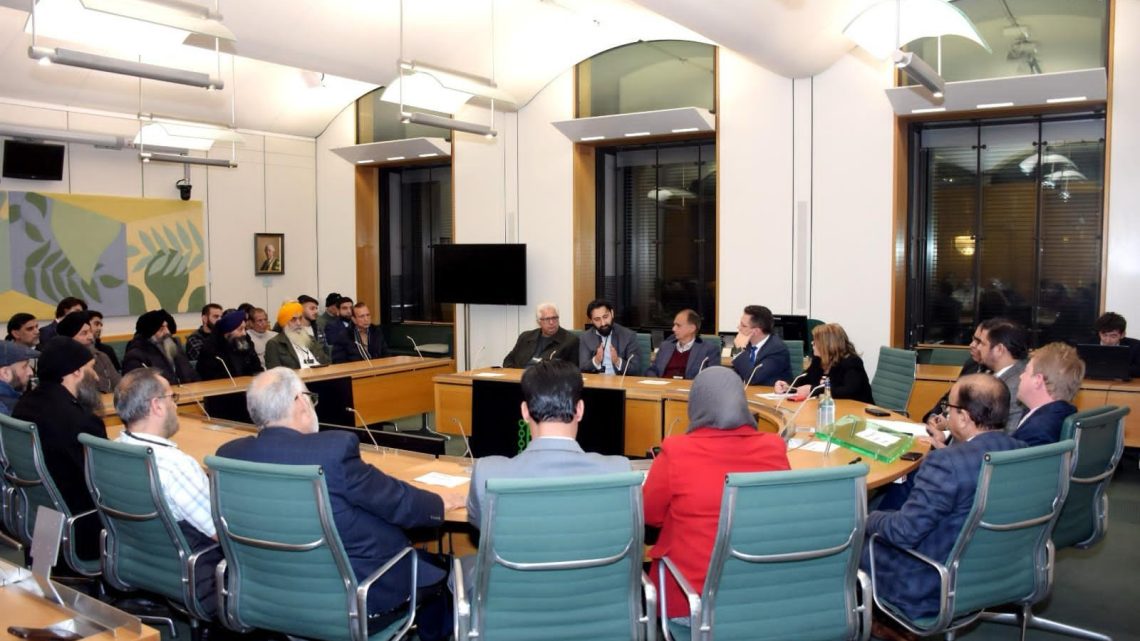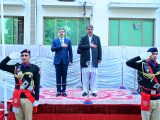
International Concerns Rise over Indian Supreme Court Decision about Kashmir
December 15, 2023In a significant gathering at the UK Parliament, British lawmakers, activists, practitioners, and peace advocates convened to discuss the ongoing Kashmir dispute, marking International Human Rights Day. The focus of the discussions centered on India’s revocation of Article 370, a move upheld by the Indian Supreme Court under Prime Minister Modi’s Bharatiya Janata Party government. The event served as a reminder to the global community of the responsibility to push for a free and fair plebiscite in the Indian illegally occupied Jammu and Kashmir region.
The conference, organized by Tehreek-e-Kashmir UK and chaired by MP Paul Bristow, addressed the critical issues surrounding the Kashmir dispute. Notable attendees included Kate Hollern, Jess Phillips, Sarah Owen, Steve Baker, Sara Britcliffe, Lord Qurban Hussain, Muhammad Yasin, Tahir Ali, Tan Dhesi, Debbie Abrahams, and Marco Longhi. The comprehensive discussions delved into the complexities of the dispute, which has escalated to a nuclear flashpoint in South Asia, involving three nuclear-powered nations with borders adjacent to the UN-designated disputed territory.
Paul Bristow strongly condemned India’s continuous illegal actions in Kashmir, urging those who advocate for the human rights of Palestinians to extend the same support to the people of occupied Kashmir. Fahim Kayani, President of the UK-based Diaspora group, commended Bristow for his unwavering support for Kashmir, emphasizing the need for the international community to address the issue.
Kate Hollern highlighted the importance of human rights, calling on the UK government to uphold those rights in Indian Occupied Kashmir, particularly after the Supreme Court’s ratification of the abrogation of Article 370 by Modi’s government. Other lawmakers echoed similar sentiments, expressing disappointment and concern over the ruling.
Tahir Ali dismissed the Indian Supreme Court’s decision, labeling it a “banana court” with no right to alter the disputed nature of Indian Occupied Kashmir. Jess Phillips lamented India’s continued illegal occupation, considering the ruling as an extension of India’s disregard for international law.
Debbie Abrahams expressed profound disappointment in the decision, branding it undemocratic and in breach of various UN resolutions. Sarah Owen acknowledged the decades-long injustices faced by the people of Indian Occupied Kashmir, emphasizing the impact on generations of Kashmiris.
Lord Qurban Hussain underscored the lack of action, particularly by the UN Security Council, in implementing laws to protect people facing human rights abuses. He emphasized that the Kashmir issue goes beyond Article 370 and called for adherence to UNSC resolutions safeguarding the right to self-determination for the people of Kashmir.
The conference also issued a London resolution on Kashmir, denouncing the Indian Supreme Court’s decision as an “open contravention” of UN resolutions. Participants expressed concern over the enforced silence by the Indian military regime in Kashmir, highlighting issues such as heightened surveillance, arbitrary arrests, and extra-judicial kidnappings.
The resolution raised alarms about the issuance of domicile certificates to non-Kashmiris, warning that such moves aimed to alter the demographic makeup of the disputed territory. Participants also called for the immediate release of Kashmiri resistance leaders and emphasized the importance of respecting international law and the UN Charter in resolving the Kashmir dispute, advocating for a fair and free plebiscite as promised by the international community since 1948.

